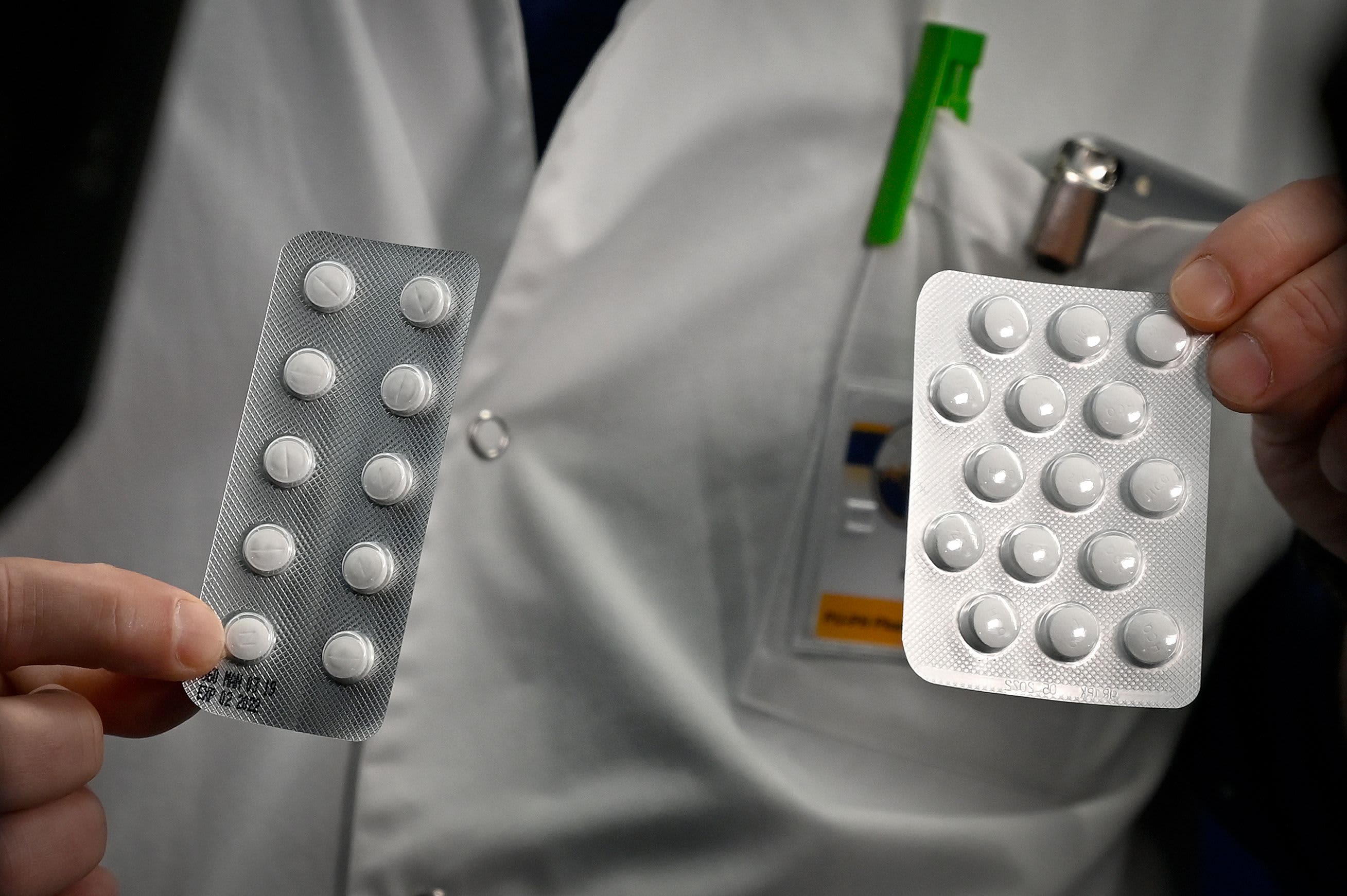
Citing a "primary outcome" of death, researchers cut short a study testing anti-malaria drug chloroquine as a potential treatment for Covid-19 after some patients developed irregular heart beats and nearly two dozen died after taking doses daily.
Scientists say the findings, published Friday in the Journal of the American Medical Association, should prompt some degree of skepticism from the public toward enthusiastic claims and perhaps "serve to curb the exuberant use" of the drug, which has been touted by President Donald Trump as a potential "game changer" in the fight against the coronavirus.
Chloroquine gained widespread international attention following two small studies, including one with 36 Covid-19 patients published March 17 in France, found that most patients taking the drug cleared the coronavirus from their system a lot faster than the control group. The JAMA report said those trials didn't meet the publishing society's standards.
"These weak findings, bolstered by anecdotal reports and media attention, have fostered widespread belief in the efficacy of these agents," according to a separate warning about prescribing the drugs issued Friday alongside the JAMA study.
The New York Times previously reported that the trial was halted over safety concerns, but the full details of the study weren't revealed until they were published Friday.
The research is fraught with political implications. A federal vaccine scientist who was ousted from leading an agency dealing with Covid-19 plans to file a whistleblower complaint alleging retaliation for his resistance to promoting the drugs touted by Trump, his lawyers said Thursday.
Dr. Rick Bright said he believed he was removed from his post leading the U.S. Biomedical Advanced Research and Development Authority because he insisted that "the billions of dollars allocated by Congress to address the Covid-19 pandemic" be invested "into safe and scientifically vetted solutions, and not in drugs, vaccines and other technologies that lack scientific merit."
The JAMA study, sponsored by the Brazilian state of Amazonas, tracked 81 adult patients who were hospitalized with Covid-19 and was conducted between March 23 and April 5 at a medical care facility in Brazil. Researchers said 40 patients were given 450 milligrams of the drug twice on the first day and once every day for the following four days. The 41 others were given 600 milligrams twice daily for 10 days, they said. Patients were also given the antibiotic azithromycin, commonly known as a Z-Pak.
By day 13, six of the 40 patients in the low-dose group had died, as did 16 of the 41 patients in the high-dose group. Heart abnormalities were seen in 11 of the 81 patients. In addition, two patients in the high-dose group experienced ventricular tachycardia, a heart rhythm disorder.
"One can only conclude from this trial that high-dose chloroquine (and by close association, hydroxychloroquine) in combination and azithromycin and possibly oseltamivir, is potentially associated with increased mortality among patients with severe, suspected COVID-19," Dr. Stephan Fihn of Harborview Medical Center in Seattle said in an editorial published alongside the study. He was not involved in the study.
There are no proven therapies to treat Covid-19, which has infected more than 2.7 million people worldwide and killed at least 191,231 as of Friday morning, according to data complied by Johns Hopkins University. The study results are likely to dampen hopes the malaria drug can be used to fight the virus.
The Food and Drug Administration warned consumers on Friday against taking chloroquine and hydroxychloroquine to treat Covid-19 outside a hospital or formal clinical trial setting after "serious" poisoning and deaths were reported. The warning was issued after JAMA shared the study results with the scientific community but before they were released to the public on Friday.
The agency said it became aware of reports of "serious heart rhythm problems" in Covid-19 patients who were treated with the malaria drugs, often in combination with antibiotic azithromycin. It also warned physicians against prescribing the drugs to treat the coronavirus outside of a hospital.
Chloroquine was approved by the FDA in 1949 to treat malaria. Its derivative, hydroxychloroquine, is often used by doctors to treat rheumatoid arthritis and lupus.
Some physicians have been using the drugs in hopes they can curb the duration of the virus in patients.
tinyurlis.gdv.gdv.htu.nuclck.rushrtco.detny.im
مقالات مشابه
- شرکت صادرات و واردات کالاهای مختلف از جمله کاشی و سرامیک و ارائه دهنده خدمات ترانزیت و بارگیری دریایی و ریلی و ترخیص کالا برای کشورهای مختلف از جمله روسیه و کشورهای حوزه cis و سایر نقاط جهان - بازرگانی علی قانعی
- ایالات متحده در بیمارستان ها در حال از دست دادن میلیون ها دلار در هر روز در میان Covid-19 همه گیر و بازیابی ممکن است سال
- 3,100 تومان کرور روپیه از ساعت مراقبت صندوق اختصاص داده شده برای پنکه مهاجران
- 150-سال-ویکتوریا خانه یک زمین بازی از رنگ های اصلی و DIYs
- نه تنها چین و روسیه، بلکه متحد آمریکا، ترکیه نیز می گوید که نشست دموکراسی بایدن «بسیاری از آنها را زیر سؤال ببرند».
- 7 سرکه ارسال ها از یک متخصص است که می تواند به شما پول صرفه جویی
- هند عبور 15-لاخ علامت در Coronavirus موارد
- داو soars 700 امتیاز برای بزرگترین پرش در یک ماه دلیل افزایش coronavirus واکسن امید
- شرکت صادرات و واردات کالاهای مختلف از جمله کاشی و سرامیک و ارائه دهنده خدمات ترانزیت و بارگیری دریایی و ریلی و ترخیص کالا برای کشورهای مختلف از جمله روسیه و کشورهای حوزه cis و سایر نقاط جهان - بازرگانی علی قانعی
- شرکت صادرات و واردات کالاهای مختلف از جمله کاشی و سرامیک و ارائه دهنده خدمات ترانزیت و بارگیری دریایی و ریلی و ترخیص کالا برای کشورهای مختلف از جمله روسیه و کشورهای حوزه cis و سایر نقاط جهان - بازرگانی علی قانعی